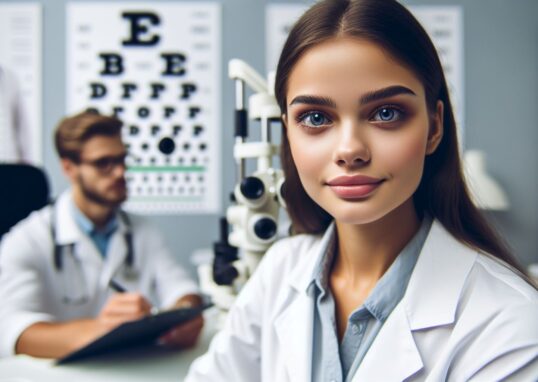
Macular degeneration, often referred to as age-related macular degeneration (AMD), is a medical condition that has garnered significant attention due to its impact on vision. It is characterized by the deterioration of the central portion of the retina, known as the macula, which is responsible for central vision and the ability to see fine details. The condition is a leading cause of vision loss among the elderly population, and its management is a topic of considerable interest and research.
The central question that arises in discussions about macular degeneration is whether it can be reversed. The consensus among medical professionals and researchers is that, as of the current state of medical knowledge and technology, macular degeneration cannot be reversed. This conclusion is supported by a wealth of information from reputable sources and studies.
Firstly, it is essential to understand the two primary types of AMD: dry and wet. The dry form is more common and less severe, characterized by the thinning of the macula and the presence of drusen, small yellow deposits. The wet form, although less common, is more severe and involves the growth of abnormal blood vessels under the retina, leading to leakage and scarring.
Treatment options for macular degeneration are focused on slowing the progression of the disease rather than reversing it. For the dry form, the Age-Related Eye Disease Study (AREDS) and its follow-up, AREDS2, have shown that a specific combination of vitamins and minerals can slow the progression in individuals with a high risk of advanced AMD. These supplements include vitamin C, vitamin E, lutein, zeaxanthin, zinc, and copper.
For the wet form of AMD, anti-vascular endothelial growth factor (anti-VEGF) injections are the standard treatment. These injections help reduce the growth of abnormal blood vessels and the leakage that can lead to rapid vision loss. Other treatments, such as laser therapy, can also be used to seal leaking vessels.
Despite these treatments, the damage caused by macular degeneration is permanent. Here’s why:
- Retinal Damage: AMD primarily affects the macula, the central part of the retina responsible for sharp, detailed vision. Over time, the macula becomes damaged, leading to vision loss.
- Cell Death: The retinal cells (photoreceptors) in the macula gradually die off. Unlike other tissues in the body, the retina has limited regenerative capacity. Once these cells are lost, they cannot be fully replaced.
- Drusen Formation: In dry AMD, drusen (tiny yellow deposits) accumulate in the macula. These deposits disrupt the normal function of retinal cells, impairing vision. Removing drusen or reversing their effects is challenging.
- Blood Vessel Abnormalities: In wet AMD, abnormal blood vessels grow beneath the retina. These vessels leak fluid and blood, causing scarring and further damage. Even with treatment (such as anti-VEGF injections), the scar tissue remains, affecting vision.
- Chronic Inflammation: Chronic inflammation in the retina contributes to AMD progression. Inflammatory processes can lead to irreversible tissue damage.
- Neural Circuitry Changes: The neural connections between photoreceptors, retinal ganglion cells, and the brain undergo alterations. Once these connections are disrupted, vision loss becomes permanent.
- Lack of Regeneration: Unlike some other tissues (such as skin or liver), the retina lacks robust regenerative mechanisms. Damaged retinal cells cannot regenerate fully.
- Complexity of the Visual System: Vision involves intricate interactions between the retina, optic nerve, and visual cortex. Disruptions at any level can lead to permanent deficits.
Vision lost to AMD cannot be restored, and the condition’s progression can only be managed, not reversed. This reality underscores the importance of early detection and intervention. Regular eye exams are crucial, especially for individuals over the age of 50 or those with a family history of AMD.
In conclusion, while macular degeneration remains an irreversible condition, ongoing research continues to explore new treatments and interventions. The goal is not only to manage the existing symptoms and slow the disease’s progression but also to find ways to prevent the onset of AMD in the first place. Until a cure is found, maintaining a healthy lifestyle, including a diet rich in antioxidants, not smoking, and protecting the eyes from ultraviolet light, remains the best defense against the onset and progression of macular degeneration.
Here are five reputable sources that discuss macular degeneration and its progression:
- Medical News Today: This article provides an overview of macular degeneration, its causes, and risk factors. It also discusses the different types of macular degeneration and the treatments available to slow its progression1
- Healthgrades: This article explains that macular degeneration is a progressive condition that worsens over time and cannot be reversed. However, treatment can help slow or stop its progression and protect your vision2
- Healthline: This article explains that there is currently no cure or way to reverse macular degeneration. However, treatments such as eye health vitamins and photodynamic therapy can slow down and stop the disease from worsening3
- Expert Answers on Macular Degeneration: This article provides a detailed answer to the question of whether macular degeneration can be reversed. It explains that while some treatments can slow its progression and manage symptoms, macular degeneration is generally considered irreversible4





